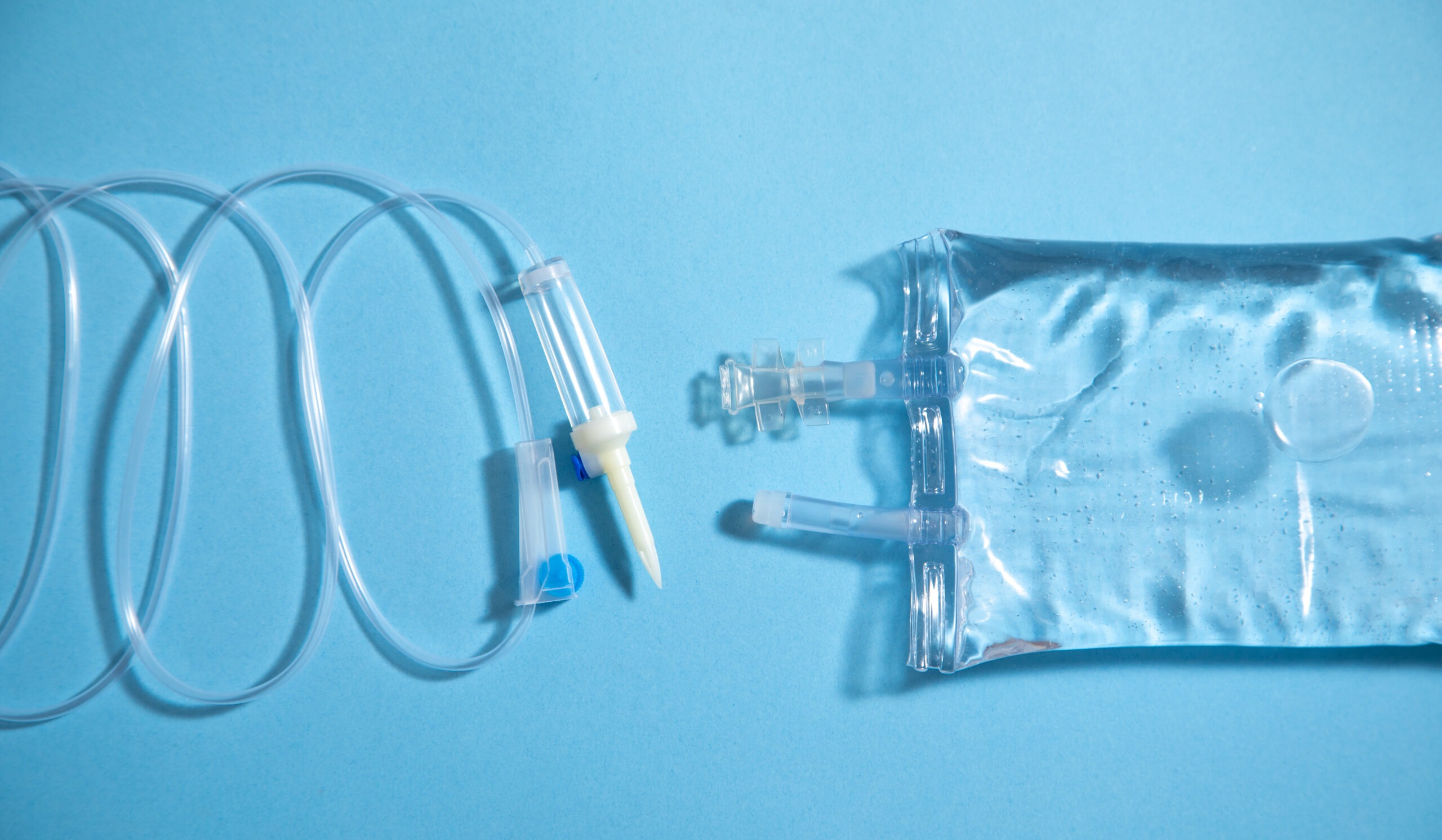IV Hydration Therapy: Who May Benefit and How It Works

Hydration is essential for nearly every system in the body, from circulation and digestion to brain function and energy production. While most people can stay hydrated through regular water and nutrient intake, certain situations call for a faster, more direct approach.
At Rebound Integrative Health & Sports Clinics, with locations in Maryland, Virginia, and Washington, D.C., we offer physician-guided IV hydration therapy for patients seeking efficient fluid and electrolyte replenishment. This article explains how IV hydration therapy works, who may benefit, and what you can expect from the process.
What Is IV Hydration Therapy?
IV hydration therapy delivers fluids directly into your bloodstream via a small catheter placed in a vein. These fluids often contain electrolytes like sodium, potassium, and magnesium, which help your body maintain fluid balance, nerve function, and muscle performance.
By bypassing the digestive system, IV hydration provides rapid replenishment that can be especially useful for dehydration caused by illness, exercise, travel, or other factors.
How IV Hydration Therapy Works
During an IV hydration session, you’re seated comfortably while a provider inserts a small catheter into your arm or hand. A sterile bag of fluids flows through a tube and into your vein over 30–60 minutes.
Because the fluids enter your circulatory system directly, they’re available to your cells almost immediately — helping restore hydration and balance faster than drinking fluids alone.
Potential Benefits of IV Hydration Therapy
Patients choose IV hydration therapy for many reasons, including:
- Faster Rehydration – Replenishes fluids and electrolytes more quickly than oral intake
- Improved Energy and Focus – Dehydration can cause fatigue and mental fog, which IV therapy may help relieve
- Muscle Support – Electrolytes in the drip may help reduce cramping and support muscle recovery
- Immune Function – Adequate hydration is key to maintaining healthy immune defenses
- Headache and Migraine Relief – For some people, rehydration may help reduce headache severity
Our providers tailor each IV blend to meet your specific needs and wellness goals.
Who May Benefit from IV Hydration Therapy
While IV hydration therapy isn’t necessary for everyday hydration, certain people may find it especially useful:
- Athletes – Supports recovery after intense training or competition
- Travelers – Helps counteract dehydration from long flights or changes in climate
- Individuals with Busy Schedules – Provides a quick way to rehydrate during demanding workweeks
- People Recovering from Illness – Replenishes fluids lost from fever, vomiting, or diarrhea
- Those in Hot or Humid Environments – Helps replace fluids lost through excessive sweating
At Rebound Clinics, we only recommend IV hydration therapy when it’s safe and appropriate for your health status.
Safety and Considerations
IV hydration therapy is generally safe when administered by trained professionals, but it may not be suitable for everyone. Possible side effects can include:
- Minor bruising or discomfort at the insertion site
- Temporary cooling sensation in the arm
- Rare allergic reactions to certain ingredients
Patients with kidney disease, heart failure, or certain other health conditions may not be candidates for IV therapy. That’s why every session at Rebound Clinics begins with a medical screening.
Cost and Insurance Information
The cost of IV hydration therapy depends on the type of fluids, added nutrients, and number of sessions. Most insurance plans do not cover elective wellness-based IV hydration unless it is medically necessary for a diagnosed condition.
We provide transparent pricing before treatment begins and can recommend a frequency that fits both your needs and your budget.
What to Expect at Your Appointment
When you visit one of our Maryland, Virginia, or Washington, D.C. locations, the process is simple:
- Consultation – We review your health history, symptoms, and goals.
- Selection of Hydration Blend – We recommend a formulation that meets your needs.
- IV Placement – A small catheter is inserted, and the infusion begins.
- Infusion Time – The treatment typically lasts 30–60 minutes while you relax.
- Post-Treatment – Most patients return to normal activities immediately after their session.
Frequency of IV Hydration Therapy
Some patients schedule IV hydration therapy weekly for ongoing support, while others come in only when needed — before travel, after illness, or following strenuous activity. Your provider will help determine a schedule that works for you.
Integrating IV Hydration into a Healthy Lifestyle
IV hydration therapy is most effective when paired with healthy daily habits, including:
- Drinking water consistently throughout the day
- Eating a balanced diet that includes water-rich foods
- Getting regular exercise
- Managing stress and prioritizing sleep
At Rebound Clinics, IV hydration therapy can also be combined with vitamin infusions for added immune support or recovery benefits.
Frequently Asked Questions
Is IV hydration therapy painful?
Most patients feel only a quick pinch when the IV is inserted. Discomfort is usually minimal.
How quickly will I feel the effects?
Many patients report feeling more alert and energized within hours of treatment.
Can I combine hydration therapy with other services?
Yes. We often pair IV hydration with vitamin infusions or recovery-focused treatments.
Final Thoughts and Next Steps
IV hydration therapy is a fast and effective way to restore fluid balance, support energy levels, and promote recovery. At Rebound Integrative Health & Sports Clinics, our physician-guided approach ensures your treatment is safe, comfortable, and tailored to your needs.
If you’re in Maryland, Virginia, or Washington, D.C., and are curious about IV hydration therapy, contact your nearest Rebound Clinics location to schedule a consultation.
Disclaimer: This article is for informational purposes only and does not constitute medical advice. Always consult a qualified healthcare provider before starting any new treatment. Individual results may vary.

